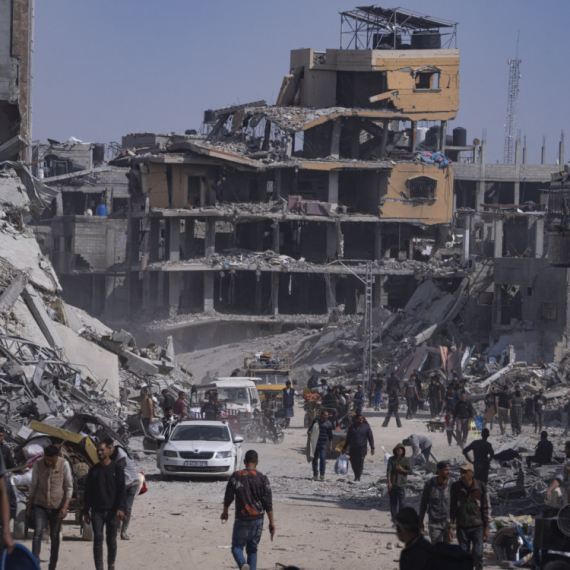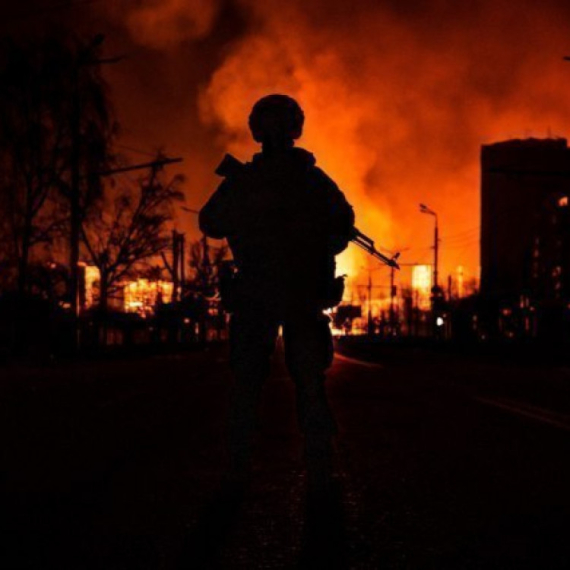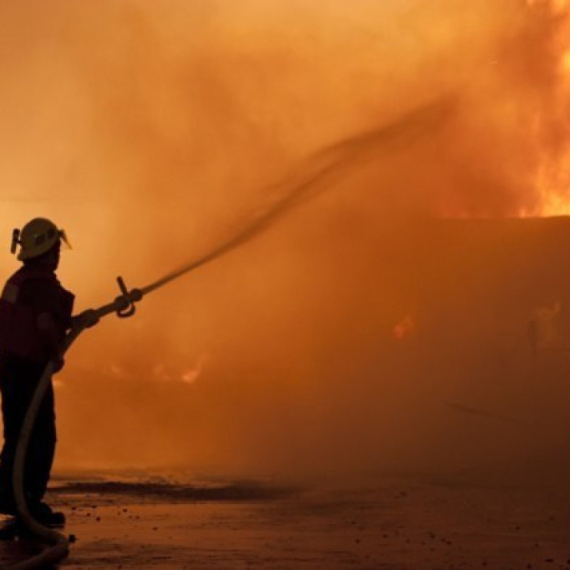Chamber of Commerce chief unconvinced by budget plans
President of the Serbian Chamber of Commerce (PKS) Miloš Bugarin has said that he doubted Serbia would have a two percent economic growth next year.
Friday, 28.12.2012.
19:53

BELGRADE President of the Serbian Chamber of Commerce (PKS) Milos Bugarin has said that he doubted Serbia would have a two percent economic growth next year. Bugarin is also unconvinced that the state budget deficit will be halved, describing at the same time the budget as "unrealistic". Chamber of Commerce chief unconvinced by budget plans He points out that the promising industries in 2013 are, above all, the energy industry, agri-food industry, infrastructure and telecommunications. The PKS president also points to industry branches that have a "competitive advantage" and are export-oriented, such as the metal processing, automotive, logistics and IT sectors. In an interview given to Tanjug, Bugarin said that over the next year, Serbia should focus on the consolidation of public finances and on striking a proper balance between the revenue and the expenditure sides of the budget. According to Bugarin, the budget for 2013 is a bit unrealistic but "well-made in terms of good wishes." "When you look at the revenue side (of the budget), I think it is too optimistic given that the current level of (economic) activity does not give ground for much optimism about ending with an economic growth of two percent, as projected in 2013, since no industry branch (in the country) has such potentials," said the PKS president. He also doubts that the budget deficit will be reduced from 7.1 to 3.6 percent over the year. Bugarin sees insolvency as a major problem and believes that the public administration should get disciplined urgently and should service its obligations within a 45 day period. He considers the law limiting payment deadlines a good step in that direction, but stresses that the state has to find a way to pay its debts from the previous period, because the law is not retroactive. Bugarin believes that bank loans should be adjusted to the strengths of the Serbian economy and made available to business people, which necessitates the monetary and fiscal policies to be harmonized. This would all be good to boost the business of small and medium-sized enterprises, he adds. "The level of uncollectible bills from banks is rapidly rising. We had four percent, now we have 25 percent on average, and there is a danger of the crisis spilling over from the real into the banking sector," Bugarin cautions. It is advisable to focus on the production of export-oriented tradable goods with a greater value-added, on increasing the export to import ratio and reducing the huge foreign trade deficit, says Bugarin, adding that the application of modern technologies in production and a re-industrialization of the Serbian economy, an increase in competitiveness and exports should be major priorities in the coming year. According to Bugarin, 2012 was a difficult year and unfavorable to the Serbian economy, marked by a decline in economic activity and standard of living, extremely low liquidity of companies, inflation, unemployment and a significantly lower level of foreign direct investment, which comes from the fact that it was an election year and one marred by political instability. Milos Bugarin (Tanjug, file) Tanjug
Chamber of Commerce chief unconvinced by budget plans
He points out that the promising industries in 2013 are, above all, the energy industry, agri-food industry, infrastructure and telecommunications.The PKS president also points to industry branches that have a "competitive advantage" and are export-oriented, such as the metal processing, automotive, logistics and IT sectors.
In an interview given to Tanjug, Bugarin said that over the next year, Serbia should focus on the consolidation of public finances and on striking a proper balance between the revenue and the expenditure sides of the budget.
According to Bugarin, the budget for 2013 is a bit unrealistic but "well-made in terms of good wishes."
"When you look at the revenue side (of the budget), I think it is too optimistic given that the current level of (economic) activity does not give ground for much optimism about ending with an economic growth of two percent, as projected in 2013, since no industry branch (in the country) has such potentials," said the PKS president.
He also doubts that the budget deficit will be reduced from 7.1 to 3.6 percent over the year.
Bugarin sees insolvency as a major problem and believes that the public administration should get disciplined urgently and should service its obligations within a 45 day period.
He considers the law limiting payment deadlines a good step in that direction, but stresses that the state has to find a way to pay its debts from the previous period, because the law is not retroactive.
Bugarin believes that bank loans should be adjusted to the strengths of the Serbian economy and made available to business people, which necessitates the monetary and fiscal policies to be harmonized.
This would all be good to boost the business of small and medium-sized enterprises, he adds.
"The level of uncollectible bills from banks is rapidly rising. We had four percent, now we have 25 percent on average, and there is a danger of the crisis spilling over from the real into the banking sector," Bugarin cautions.
It is advisable to focus on the production of export-oriented tradable goods with a greater value-added, on increasing the export to import ratio and reducing the huge foreign trade deficit, says Bugarin, adding that the application of modern technologies in production and a re-industrialization of the Serbian economy, an increase in competitiveness and exports should be major priorities in the coming year.
According to Bugarin, 2012 was a difficult year and unfavorable to the Serbian economy, marked by a decline in economic activity and standard of living, extremely low liquidity of companies, inflation, unemployment and a significantly lower level of foreign direct investment, which comes from the fact that it was an election year and one marred by political instability.



























































Komentari 1
Pogledaj komentare